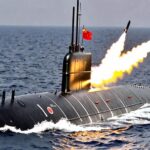Violent Assault on Vietnamese Fishing Vessel by Chinese Personnel in South China Sea
Vietnamese fishermen suffered serious injuries during an alleged attack by Chinese government personnel in the South China Sea, near the disputed Paracel Islands. The assault, involving a boarding by Chinese vessels, raised concerns over escalating tensions in the region and highlighted the dangers faced by fishing crews operating in contested waters.
On a recent Sunday, a Vietnamese fishing vessel was reportedly attacked by personnel from the Chinese government in the contested waters of the South China Sea, resulting in serious injuries to several fishermen. The incident occurred near the Paracel Islands, an area claimed by both Vietnam and China, with China asserting de facto control since a military confrontation in 1974 with South Vietnamese forces. The conflict over maritime boundaries in this region has escalated in recent years, particularly between China and its neighbors, as China enforces its extensive ‘dashed line’ claims across the South China Sea. Recent confrontations have frequently been documented, particularly involving the Philippines and its exclusive economic zone. Local authorities in Vietnam reported that the fishing vessel, identified as QNg 95739 TS and captained by Nguyen Than Bien, was intercepted by two Chinese vessels operated by the Sansha City Comprehensive Law Enforcement Bureau. It was reported that the Chinese ships employed rigid-hulled inflatable boats to pursue and board the Vietnamese vessel around 10 a.m. during a fishing operation, during which approximately 40 personnel from the Chinese vessels forcibly came aboard and assaulted the crew with iron bars, leading to multiple injuries. One crew member, Huynh Tien Cong, detailed the brutality of the encounter, noting, “I was beaten so severely that my arms and legs were broken.” Following the altercation, the crew also reported that their fishing equipment was destroyed and around six tons of their catch was stolen. In response to the outcry regarding this incident, a spokesperson from China’s Ministry of Foreign Affairs affirmed that their actions were “professional and restrained” and contested the claims of injuries among the Vietnamese crew. The Vietnamese and Chinese foreign ministries have as yet not provided comments on this incident. Research conducted by security analyst Duan Dang indicates that aggressive actions of this nature occur with alarming regularity in the region. Reports from prior incidents demonstrate a troubling trend of violence against Vietnamese fishermen allegedly for fishing illegally within waters claimed by China. Despite a history of cordial diplomatic relations between Vietnam and China, tensions remain evident given the ongoing disputes over territorial claims. This latest incident further complicates the already intricate dynamics of international relations in the South China Sea region.
The South China Sea has long been a contested area with numerous countries, including China, Vietnam, the Philippines, and Malaysia, asserting territorial claims over its waters and islands. The Paracel Islands, located in the South China Sea, are a focal point of these disputes. China has enforced its jurisdiction over this area since gaining control through military action in 1974, while Vietnam and other Southeast Asian nations continue to contest these claims. The tensions surrounding these territorial assertions often escalate into reported confrontations between fishing vessels and government ships, highlighting the fraught nature of international maritime law and regional security concerns. The involvement of U.S. policy, particularly through defense treaties with regional allies including the Philippines, adds another layer to the complexity of these maritime disputes.
The reported violent assault on a Vietnamese fishing vessel by Chinese personnel underscores the ongoing tensions in the South China Sea, particularly surrounding the disputed Paracel Islands. The incident has highlighted the risks faced by fishing communities operating in these contested waters, as well as the broader implications for regional diplomacy and security. As confrontations persist, they not only affect bilateral relations but also contribute to a volatile atmosphere in an area that is critical for international shipping and strategic navigation.
Original Source: www.newsweek.com








Post Comment